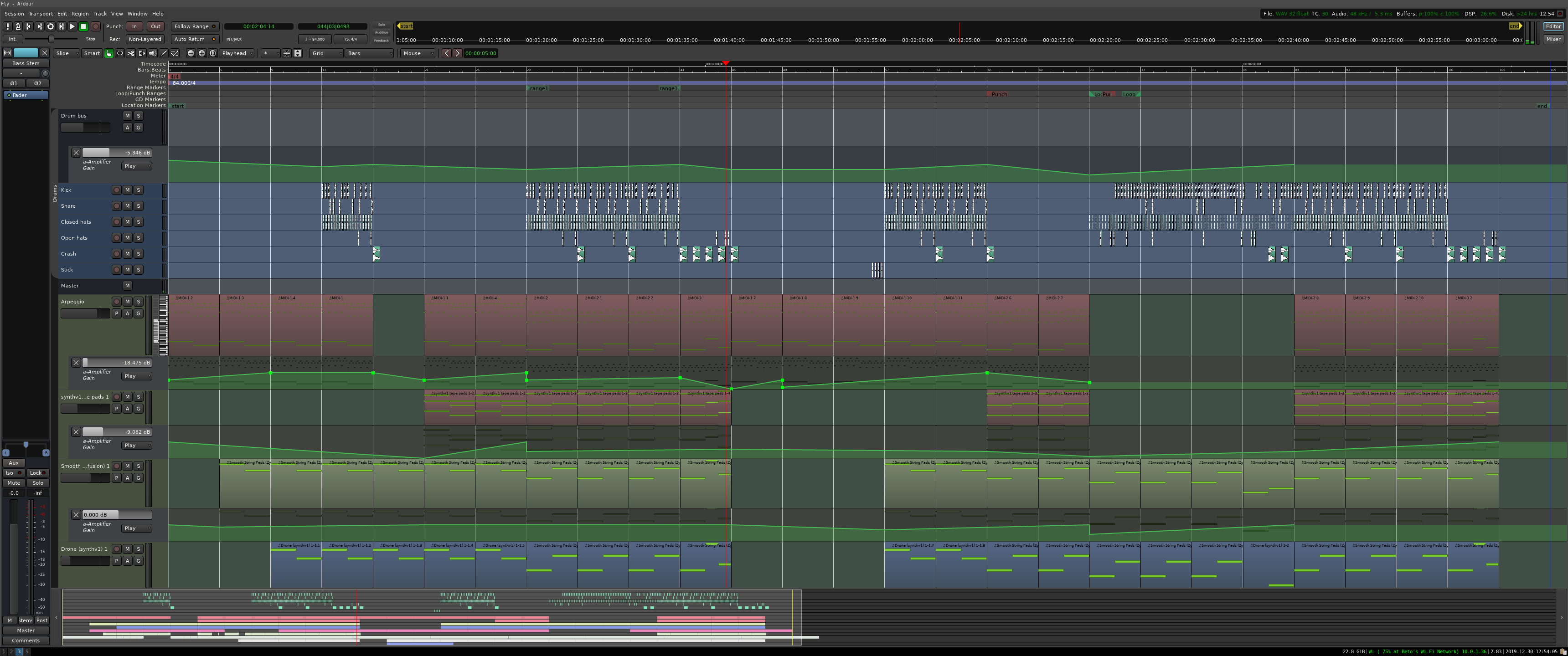Home » Ardour is 20!
Ardour is 20!
Ardour, the open source digital audio workstation software that I used for music production, is turning 20!
Approximate reading time: 3 minutes
Ardour[archived], the Digital Audio Workstation I use for producing music, just turned 20[archived]!
I started producing music back in 2014. I was working at Facebook at the time, and someone organized an Ableton[archived] crash course at the company. I was impressed by how easy it was to write down a quick song with Ableton, laying down a bass line, pads, drums and a melody. After my 30-day trial expired, I bought a commercial version and started making songs, learning from YouTube, Reddit and books.
You can hear my first song[archived] here:
It's terrible, but I always believed in the "release early, release often" mantra of open source, and I decided to apply it to my music as well. The second one[archived] is slightly better, and I think I've kept improving since then.
After a few months with Ableton I decided to try a new DAW called Bitwig[archived]. I was really happy with Ableton, and had already invested good money in it, but I like trying out new things, and Bitwig was started by engineers that had left Ableton. I fell in love with BItwig, mainly because it's extremely modular. For example, it's really easy to add a plugin that alters a (virtual) knob in another plugin, something that I haven't seen in other DAWs.
I used Bitwig for a few months, and then decided to try making music with open source software (OSS). I've always been a great fan of OSS, and I've been using Linux since 1998, so I realized I should also try to make music using an open source operating system and an open source DAW. I installed Ardour and gave it a try, but my first song was terrible. Everything was much more cmoplicated than in the Mac world: there were fewer plugins, and almost none had presets. Integration with MIDI controllers was sub-par or non-existent.
After writing 2 songs, I was back to producing on Bitwig running on a Mac.
But after a few more months, I decided to give it another try. I'm a strong believer that we should try to do things for at least 2 months before giving up, so I decided to do that. I started writing songs using Linux and Ardour, and initially, I expected, the quality and speed of my production went down. But as I pushed forward, I started becoming productive again, thriving in the constraints that I had set for myself.
And in doing that, I became a better producer. Most plugins had no presets, so when I added a compressor to a vocal I had to hear and think about what kind of sound I was looking for, instead of just choosing "vocal" from a dropdown. I stopped getting distracted by the myriad of plugins that were released every month, and instead I learned to use the few plugins that I had.
I was also able to write songs in new ways. For example, in this song[archived] I connected the output form an internet radio stream into a program that translates sounds into notes[archived]. Those notes were sent into a synthesizer, and I simply recorded the output. I called it "The Whale Song", because that's what it sounds like:
Working with Ardour and open source plugins made me realize that the most important thing in music productions is not your DAW or your plugins. It's learning how to listen, and how to think about music. Those are the things that matter, and they will take you much farther than upgrading from a stock plugin to an expensive one.

Comments
You can engage with this post on Twitter.